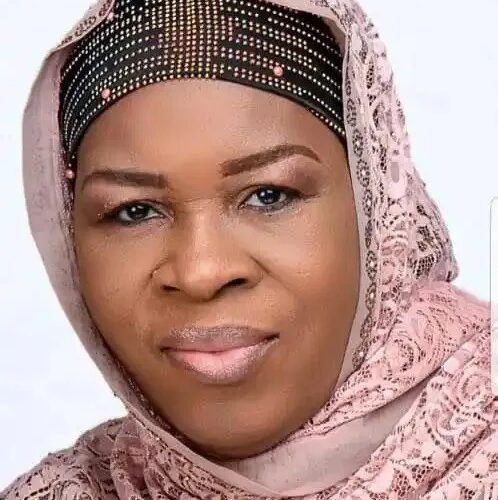By People&Politics
By Zainab Suleiman Okino
On July 18, the Joint Admission and Matriculation Board (JAMB) held its 2024 policy meeting to determine modalities for admissions into tertiary institutions. However, the process was overshadowed by an age controversy. It began when the Minister of Education, Professor Tahir Mamman, reiterated his concern about underage students writing exams preparatory to becoming undergraduates, a point he had raised during the last Unified Tertiary and Matriculation Examination (UTME). Almost all the tertiary education administrators at the event unanimously opposed the minister’s suggestion of an 18-year-minimum age, forcing him to temporarily reverse and defer the proposal.
Ultimately, a minimum age of 16 was agreed upon. Despite this decision, confusion and controversy continued to trail the issue, prompting JAMB spokesman Fabian Benjamin to convene a press conference to debunk circulating rumours. He stated, “For the 2024 admission cycle, candidates who will be at least 16 years old at the time of admission will be considered eligible. This decision follows the directive from the chairman of the 2024 tertiary admission policy meeting, who is also the Honorable Minister of Education, Prof. Tahir Mamman, that the extant policy of 6-3-3-4 be enforced only in the 2025 session.”
Benjamin expressed concern over the “alarming avalanche of obviously false affidavits and upsurge of doctored upward age adjustments on NIN slips being submitted to JAMB.” He emphasized that such actions were “dangerous, inimical, and unnecessary,” adding that “Only those below 16 would not and should not be admitted in accordance with the decision of the policy meeting.” Age alteration is our pastime. It happens in age-grade football competitions where we present senior adults as under-18 or under-21 to the world. The result is early exit from the scene while their age mates elsewhere are still relevant.
The question arises: Why are we doing this to ourselves? Why are parents altering their children’s ages to meet the new requirements? There are several factors at play. Apart from students who have already written JAMB but might not be 16 at the time of admission, the 2025 deadline for implementing the 18-year minimum age will undoubtedly affect some children. For instance, a 14-year-old currently in SS-2 will finish secondary school at 16 next year, still two years short of the 2025 deadline when the “new policy” takes effect. The public service sector is replete with this age scam. To stay longer in the public sector and beat the prescribed 60-year retirement age, civil servants alter their age. Now people are extending the fraud to their children.
Should parents be in a quandary because of this? Not necessarily. Cheating or forging documents is not the answer. If your child is in this situation, the ethical approach is to have them wait after writing WAEC until they are 18 years old, then write another JAMB to be ready for university entry. However, I anticipate that many parents and, surprisingly, tertiary education administrators will strongly disagree with this suggestion, given the massive condemnation that followed the minister’s proposal at the policy meeting.
At that meeting, I was seated between two female colleagues. All three of us agreed with the minister’s suggestion, but a man seated behind us vehemently disagreed. His argument was that today’s children are brilliant and clearly ahead of their time, and as such, should not be denied the chance to start university as early as 14 years old. While I acknowledge some exceptional cases, the prevalence of normal situations outweighs these rare instances.
In fact, one of the ladies present shared that her son gained university admission at 16 but squandered the opportunity due to immaturity. Unfortunately, his parents didn’t realize this early on as he was staying with his uncle. The boy was eventually advised to withdraw and is now starting all over at age 22.
The other lady, though younger with little children, recounted an even worse case of a young woman who started university at 15 and became pregnant at 17, attributing it to inexperience due to her age. I’ve witnessed similar cases, including a friend’s daughter who was sent to study abroad at 15. She spent three semesters there but returned home without any results that could help her gain admission to second year in any private university. She too had to start all over, finally graduating last year at 25. This is ridiculous for someone who started out at age 15 plus. Time and money were wasted, but what else did she miss among her peers by graduating late? The young lady, like everyone else, will still fulfill her destiny.
Unfortunately, for many tertiary education administrators, financial considerations often outweigh the science of maturity. Maturity is about physiological and psychological readiness, not just about brilliance or size. I urge parents to reconsider their fixation with early graduation for their children, regardless of how talented they may be. We often hear of these early graduates finishing at 19 or even earlier, only to remain stagnant afterward or stay at home with their parents due to lack of opportunities or in the least, unpaid internships. Don’t we all know such cases? What’s driving this rat race? Is it to outdo one another, showcase pride, demonstrate capacity, or prove brilliance? I simply don’t understand.
On the other hand, these infractions persist because successive governments have not been serious about or committed to the policies they enact. If we strictly followed the 6-3-3-4 policy, with 6-7 years before primary school, no student would graduate before 21-22. However, because the process is abused without consequences, parents sidestep the system, resulting in immature graduates.
Therefore, the Minister of Education should follow through with this new approach beginning next year, as agreed. Interestingly, when it comes to sending our children to Western countries, especially the US, we exercise patience until they are 18 years old. Back home, we seem to think we have license to misbehave.
Zainab Suleiman Okino (FNGE) chairs Blueprint Editorial Board. She is a syndicated columnist and can be reached through zainabokino@gmail.com



















